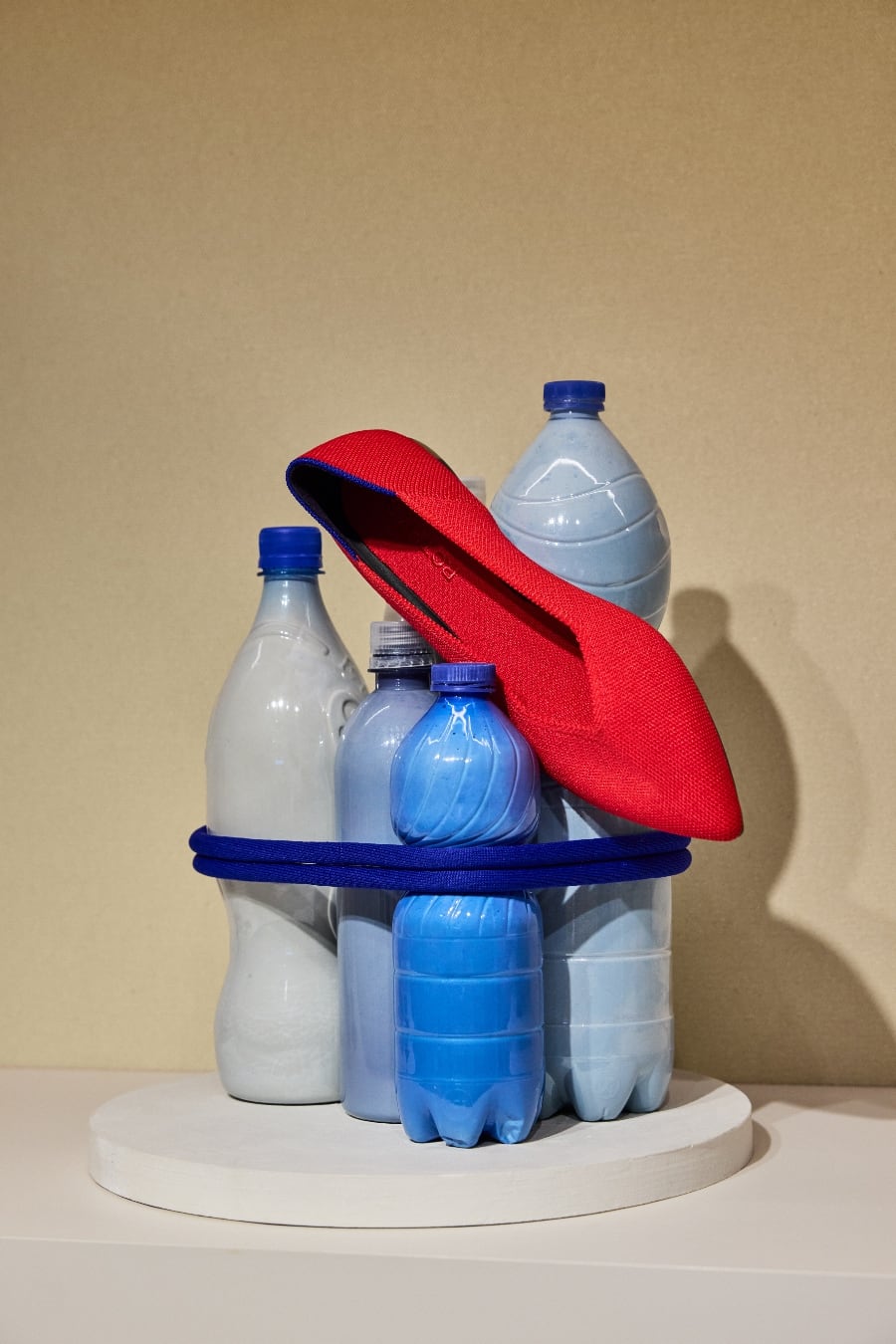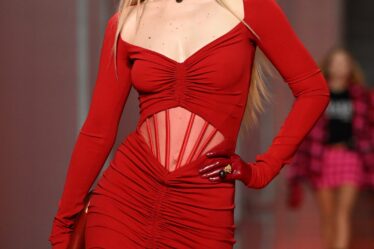
Rothy’s is trying its hand at becoming an international brand.
The San Francisco-based footwear seller, known for its pointed-toe flats made with a soft, machine-washable recycled material, opened a pop-up in luxury department store Liberty London on Monday. The 2,839-square foot space houses Rothy’s $119 classic ballet flat and new bestsellers including its $159 Birkenstock-esque clogs and $159 square-toed mary janes. These pieces will also be available on Liberty’s e-commerce site.
Rothy’s plans to open a permanent standalone store in London, and launch additional pop-ups in Europe and Latin America, according to Dayna Quanbeck, Rothy’s president.
The 8-year-old brand currently operates 23 stores in the US and began shipping to 20 countries this year, including the UK, Germany and France, but the Liberty London shop-in-shop marks its first physical retail presence overseas.
As part of its retail expansion strategy, the company opened six new locations in the US this year, including a 1,880-square-foot flagship on Fifth Avenue in New York in July.
“We’re focused at Rothy’s on brand-led global growth,” said Quanbeck. “We’re seeing a lot of momentum in the UK and really wanting to fuel that momentum and grow our brand there.”
Rothy’s global ambitions underscore a transitional phase for the brand. Both of its founders, Stephen Hawthornthwaite and Roth Martin, stepped down from the executive suite earlier this year. Hawthornthwaite was replaced by former Old Navy executive Jenny Ming as CEO, while Quanbeck, who joined the brand in 2019 as chief financial officer, replaced Martin as president.
The leadership changes came as the brand — which is owned by Brazil-based Havaianas-owner Alpargatas that invested $200 million and acquired a near majority stake in 2021 — reported a 20 percent drop in sales in the third quarter of 2023 following a slowdown in traffic on its online store. It ended that year with revenue down 1 percent to $180 million in 2023.
Rothy’s biggest line of defence against its sales slump has been a physical retail push in the US. The brand has three more planned store openings before the end of the year, with a goal to operate as many as 75 stores in the US as it simultaneously establishes an international presence.
The brick-and-mortar focus is an opportune strategy as consumers grow more enthusiastic about in-person shopping — particularly among young shoppers. Rothy’s is also buoyed by the ongoing “balletcore” trend that has made flats a coveted shoe style in recent seasons.
In the first half of 2024, Rothy’s in-store sales jumped 16 percent as overall revenue increased 10 percent to $85 million. It also generated $4 million in net profits during the same period, up from an $8 million loss last year. The brand’s current footprint of 23 stores has become a primary customer acquisition driver, eschewing the need to spend on digital ads. Around half of the people who visit its stores are new customers, Quanbeck said. E-commerce now makes up about 84 percent of sales.
“We will continue to evolve our business model away from e-commerce only,” she said. “In 2019, we were 98 percent online and over time that’s going to come down, and it will continue to go down.”



